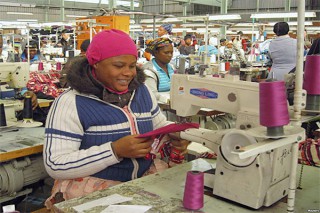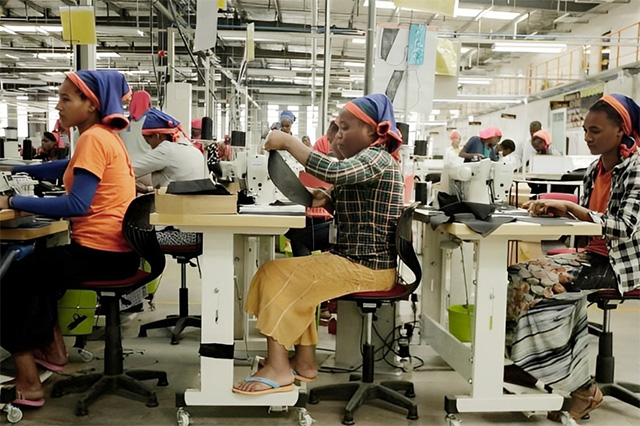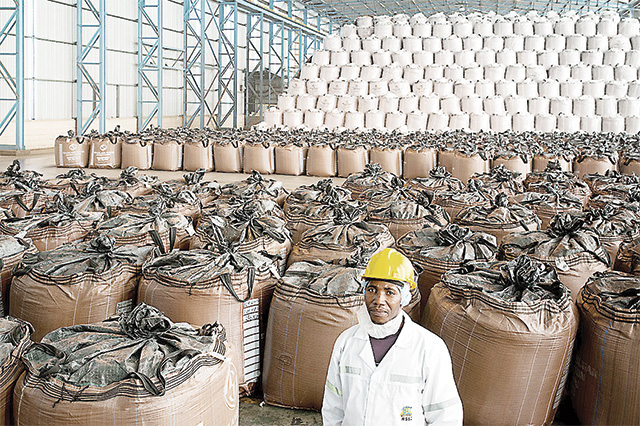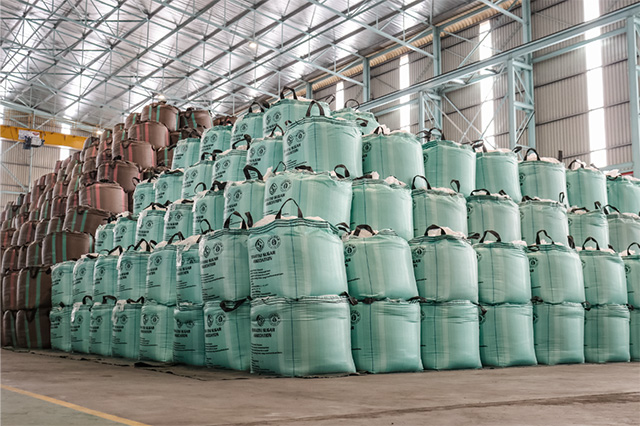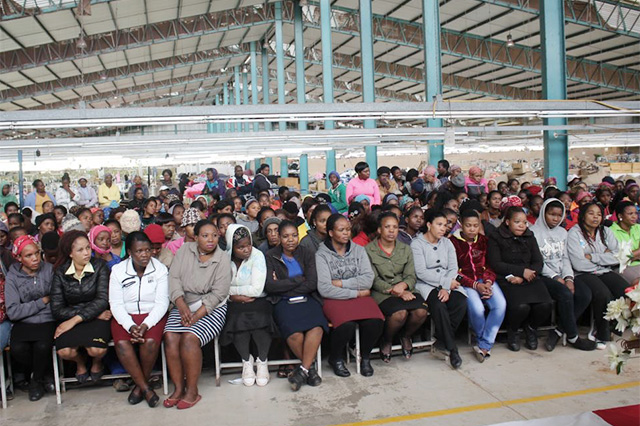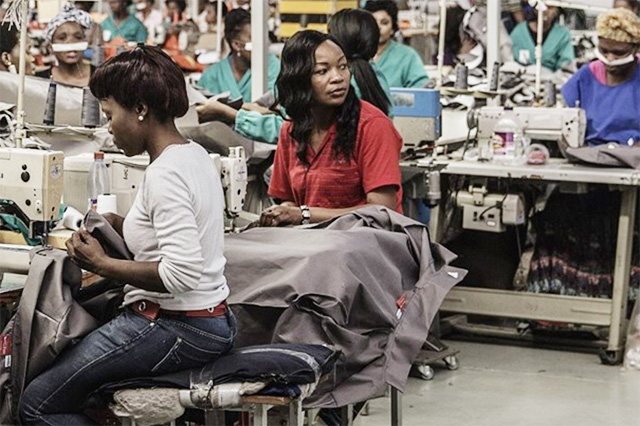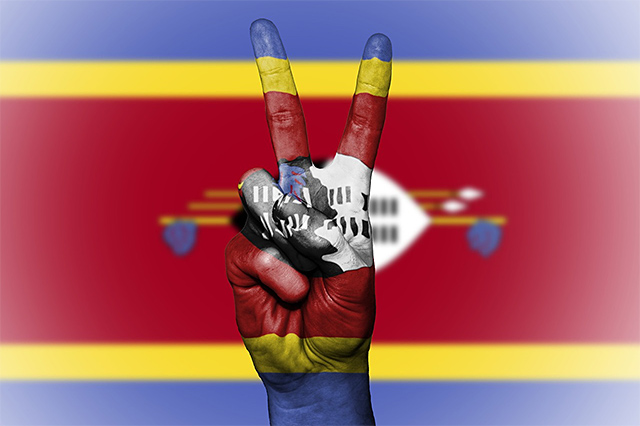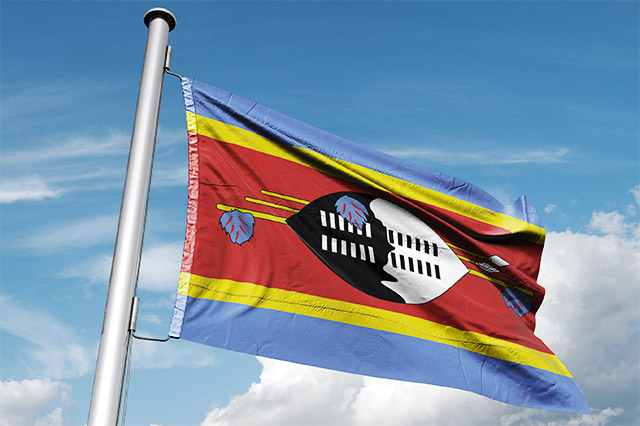Swaziland: We are closing down - Textile companies
Textile companies say they are indeed closing down unless government is willing to pay the duties levied by the United States on exports that do not benefit from the African Growth and Opportunity Act (AGOA).
This week Texray in Matsapha said it had no choice but to retrench part of its workforce for the time being so as to diminish the company’s financial loss as a result of Swaziland’s removal from AGOA as of January 2015.
Amalgamated Trade Unions of Swaziland (ATUSWA) Secretary General Wonder Mkhonza said the union met with the directors of a major textile company on Wednesday, where it was confirmed that they would be closing down.
“We met with one of the big textile companies in Swaziland, which I cannot divulge right now, and they told us they have no choice but to close down their operations,” he said yesterday.
Mkhonza said the companies say the only way they could continue operating in Swaziland was if government could commit to taking over the payment of export duties they would now be compelled to pay as of beginning of next year.
He said the companies were not even willing to bear half the cost as they would be operating at losses if they did. “They say it’s ‘all or nothing’. If government refuses to bear the cost of exporting outside of AGOA then they are definitely closing shop,” he said.
Mkhonza said there was also suspicion that the textile companies were being bullied (from certain quarters) into not announcing their intentions even though some of them have already made up their minds.
He said, for instance, the announcement by Texray on its planned retrenchments was actually penned on October 8 but the union was only given the letter of intention on October 21, two weeks later.
“At the end of the day, these companies are here to make money and if there’s none being made then they have no obligation to stay. The situation is really gloomy and all we can do is hope our government realises the seriousness of the matter,” he said.
The secretary general said it was really heart-wrenching when they spoke to the workers who would be affected by the closure of these companies. He said, for instance, the terminal benefits they would receive were just too paltry for survival.
“The benefits being calculated for them are too little to even survive for two months. For those of us close to the situation on the ground it’s really painful. Honestly, those who are far removed from the situation are happy because they don’t have to witness the misery that has become characteristic at the textile companies,” he added.
“Government cannot just wish this away. It seems that while the rest of the world is moving forward, Swaziland is going backwards, which should not be the case. When you talk to the affected people, the reality of the situation really sinks in.”
After an extensive review, including through a US Trade Representative-led interagency trip in April, the United States government concluded that Swaziland had not demonstrated progress on the protection of internationally recognised worker rights.
In particular, Swaziland was said to have failed to make continual progress in protecting freedom of association and the right to organise. Of particular concern was the country’s use of security forces and arbitrary arrests to stifle peaceful demonstrations, as well as the lack of legal recognition for labour and employer federations.
On Wednesday, parliamentarians passed the Industrial Relations (Amendment) Bill, 2014, which seeks to meet the benchmarks set by the American government for Swaziland to retain its eligibility to benefit from AGOA.
However, the Bill has been received with mixed feelings; unionists have expressed discontent on a clause that seeks to hold their leaders criminally liable for offences committed during protest actions.
The clause states; “In the event of a union protest action that results in offences being committed, where there was reasonable cause to believe that an offence had been committed by a body corporate, criminal proceedings may be instituted against any person who at the time of the commission of the offence was a director, manager, secretary or other office bearer of such a body who was purporting to act in any such capacity.” The unionists feel criminal liability should be removed from the union and its leaders, while others said they still needed clarity on the amended Bill.
The American Embassy was asked what their government’s position’s regarding Swaziland’s status right now and whether it thought Swaziland would meet the next deadline in which to ensure that the country complies with the AGOA benchmarks on time for the review. “We have no comment on the issue of the annual review of all eligible sub-Saharan African countries to determine if they have established, or are making substantial progress towards establishing the required conditions for participation in AGOA (of which Swaziland will be a part),” said Public Affairs Officer Ruth Newman.
She said in terms of updates, all they knew was that Minister of Labour and Social Security Winnie Magagula had tabled the Industrial Relations (Amendment) Bill, 2014 in parliament and it had been passed.
AGOA is a United States preferential trade programme established in May 2000 that provides duty-free access to the $3 trillion (about E33 trillion) American market for thousands of products from eligible sub-Saharan African countries.
One goal of AGOA is to support sub-Saharan African economic development through trade and investment. The programme offers tangible incentives to sub-Saharan African countries for undertaking difficult political and economic reforms that promote long-term growth and development.
Swaziland began benefiting from the programme in 2001 when government voluntarily accepted the AGOA eligibility criteria, which includes respect for the rule of law, poverty reduction, combating corruption, respect for workers’ rights and human rights, child labour protection and market openness. Swaziland’s loss of AGOA benefits will restrict possibilities for diversifying agro-food sector exports, even if the pending 2015 review of the AGOA scheme introduces some of the changes suggested in the Brookings Institution report.
The case of Madagascar after AGOA loss
Researchers say Swaziland’s loss of AGOA will severely injure the economy. The country’s exports to the US are said to have averaged over $100 million (about E1 billion) a year since the beginning of AGOA, mostly in the apparel sector.
Of the countries that had their AGOA benefits revoked over the years, Madagascar is said to be the only one that lost access in any significant amount to non-mineral fuel-related exports to the US under AGOA. It must be noted that Madagascar regained its eligibility just as Swaziland lost it.
The large majority of U.S. imports from sub-Saharan Africa enter under AGOA, though on average, about 90 percent of imports under AGOA are oil or energy related. Automobiles and apparel make up the leading non-oil import sectors, which serve to create the most jobs in AGOA-eligible countries.
Exporters
Swaziland is one of the main exporters of apparel under AGOA. Madagascar was the last major non-oil AGOA-beneficiary that saw its status revoked, following a coup in 2009. This revocation resulted in massive setbacks for its economy. According to Reuters, half of Madagascar’s 150 factories, which employed 50 000 workers supplied major US stores and brands, such as Wal-Mart, Bloomingdale’s and Adidas. Following revocation, tariff rates on apparel exports returned to high levels - estimated around 12-33%, much greater than the tariff free access of AGOA.
Warning that the tariff increase would make apparel exports from Madagascar uncompetitive and result in export losses, then-head of the Madagascar Export Processing Zone Association said it was a very difficult market. “The margins are minute and no buyer will risk the financial burden of paying that duty.”
Sure enough, the results of revocation were detrimental, it was said that consequences of AGOA revocation for Madagascar had a larger impact on the economy than the political turmoil that caused it.
According to Fukunishi, the revocation caused exports from Madagascar to the US to fall by around 70%, caused almost 30% of job losses after the coup, and largely increased the probability of factory shutdowns.
Similarly, a publication by the United Nations Economic Commission for Africa indicated that the revocation also had negative effects on regional integration and nearby economies,stating that the revocation “affected several countries which are also AGOA beneficiaries, as Madagascar’s apparel sector uses denim fabric from Lesotho, zippers from Swaziland, and cotton yarn from Zambia, Mauritius and South Africa.”
Furthermore, from a foreign investor’s perspective, the Madagascar saga highlights the risk of losing the benefits of lower tariffs to the US if a country loses its eligibility to AGOA. Such a risk cannot be measured but it will certainly be priced. Researchers say while it’s not clear how much time Swaziland requires to make reforms, there’s certainly a lot the country can do before 2015 to make efforts towards respecting human rights and workers’ rights in order to avoid losing their jobs.
Much like Madagascar, Swaziland has a lot to lose with the loss of AGOA eligibility.


